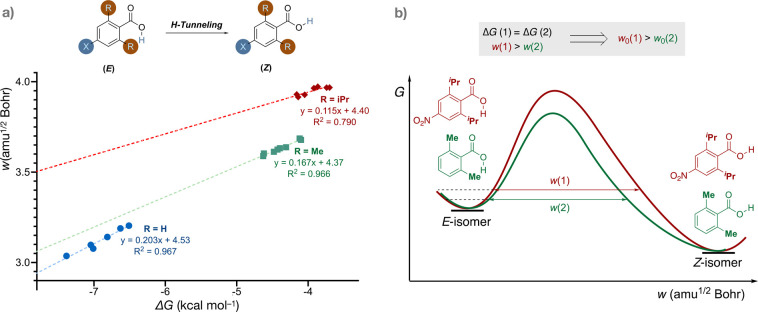Figure 5.
Computational predictions. (a) BEP correlations for three series of different ortho-substituents manifesting three different intrinsic barrier widths. All computations were performed at MP2/cc-pVDZ. The vertical axis, the “barrier width”, shows the mass-weighted Cartesian coordinates in units of amu1/2 Bohr along the path for R = H, X = CN, Cl, F, CH2F, H, Me; for R = Me, X = NO2, CN, AcNMe, Cl, F, CCH, H, Me; and for R = iPr, X = CN, NO2, CF3, Cl, F, H, Me, all in ascending order of the Gibbs energy change of isomerization (i.e., these are ordered as above left to right). (b) Qualitative IRCs of two reactions signifying different intrinsic barrier widths: with the same thermodynamic driving force, different barrier widths are the result of the different intrinsic barrier widths.

